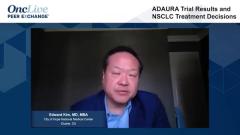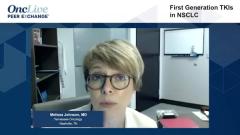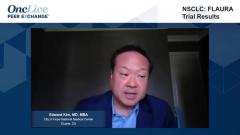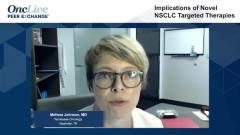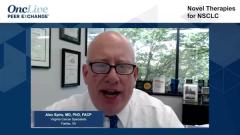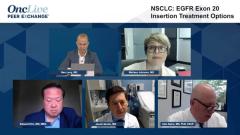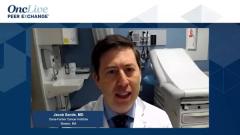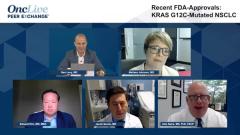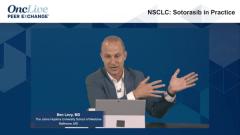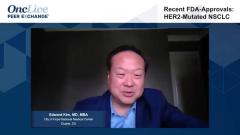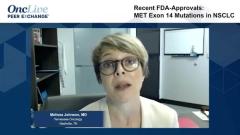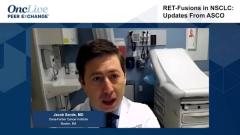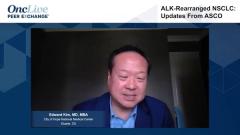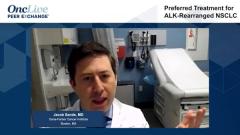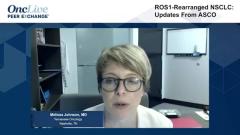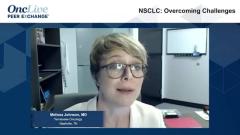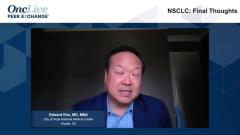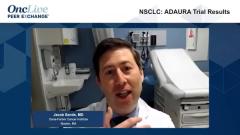
NSCLC: Sotorasib in Practice
Experts share their real-world experiences regarding treatment with sotorasib, a new FDA-approved option for KRAS G12C-mutated non–small cell lung cancer (NSCLC).
Episodes in this series

Benjamin Levy, MD: Jacob, what are your impressions of the data with sotorasib? How are you going to use this drug in your clinic every day?
Jacob Sands, MD: It’s exciting. We’re finally cracking through some of the KRAS, so now it’s just a matter of the other KRAS mutations. We’ve had a couple of the trials’ enrollment here, and it’s exciting to see patients do well. Now that it’s approved, this is something I prescribe excitably to patients. I highlight what’s next and how we move it up front. In all the other targeted stuff, we’re really moving it up front. Now it’s a matter of how this fits into that space as well.
Benjamin Levy, MD: It’s an exciting time. I ordered my first sotorasib yesterday, and I spent about 2 hours trying to get an order because we don’t have it in yet. It took forever. Hopefully we’ll get it there. It’s interesting. I’m having to look back at the mutation profile for my patients who’ve been on I/O [immuno-oncology] for 2 years, now that some of them are having disease progression, to figure out if they had a KRAS G12C. That’s important. Twelve to 18 months ago we didn’t think we were going to have to look, but it’s important to look back and see what type of mutation they had, so that they could be eligible.
Jacob Sands, MD: With all the things now, that’s so important. That’s something to highlight for everyone in the community, in academic centers across the board. Look back, and make sure people got tested, not just for this. Even RET isn’t so long ago—there are some people who didn’t get tested for that and for others as well. It’s such an important point you make.
Melissa Johnson, MD: In fact, we did that on Friday afternoon after the data was presented. Tennessee Oncology had a wrap-up lung session, and we went back to our molecular profiling data and reported it this week.
Benjamin Levy, MD: Any final thoughts on KRAS before we move to the next genotype that’s potentially actionable with new drugs?
Edward Kim, MD, MBA: We’ll have to sort this out. More data will be needed with the computations, right? We’re getting some early data that are preliminary and a little conflicting, we just need to wait and see on things like STK11 and others.
Benjamin Levy, MD: Great point, Ed. I didn’t hear a biological rationale while this drug may have a higher response rate with STK11-mutant KEAP1 wild. I was waiting for that. Yes, they were small data sets, but you bring up a good point.
TRANSCRIPT EDITED OR CLARITY


